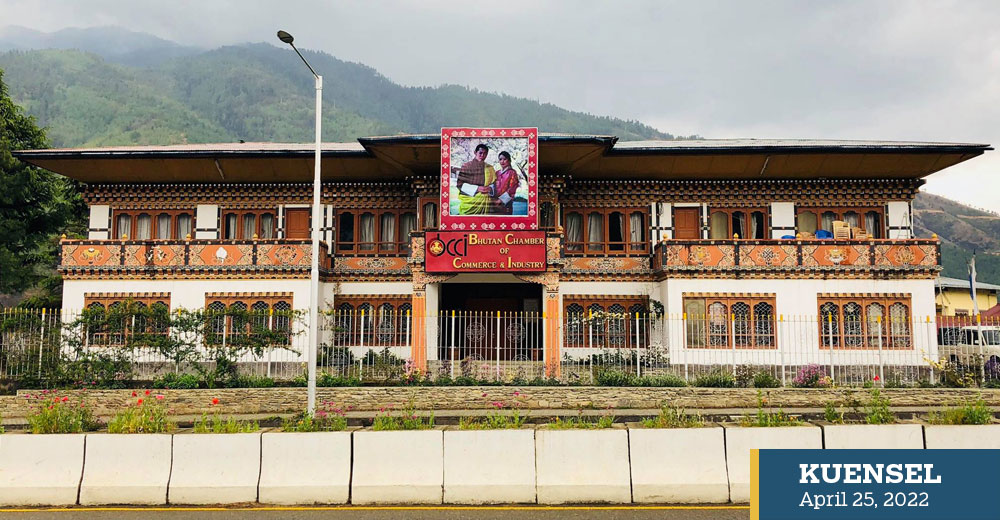Phurpa Lhamo
A moratorium on loan repayment, subsidy and fiscal incentives to promote the tourism sector, and promoting and marketing tourism were some of the suggestions the Bhutan Chamber of Commerce and Industry (BCCI) put up to the government and the Royal Monetary Authority (RMA) on April 13 to help the tourism sector bounce back.
The chambers submited the recommendations to the government on behalf of the private sectors as a part of the economic recovery plans for the private sectors
The post-June 2022 measures submitted to the government stated that hotels would face difficulty to recover as they would require refurbishing their hotels and training staff.
To mitigate the situation, it was crucial to consider a three-year moratorium on loan repayment for hoteliers. It also stated that tour operators, airlines, construction firms, retail and manufacturing businesses excluding hotels might be able to recover quicker than hotels post-pandemic.
It, therefore, recommended for a one-year moratorium on loans taken before the Covid-19 pandemic to all tour operators, airlines, construction firms, retail and manufacturing businesses.
“On completion of the moratorium period, the loans should be restructured and calculated as per the principal outstanding balances on June 30, 2022,” it stated.
The measure also recommended marketing and airfare subsidies from the promotion and marketing budget of the Tourism Council of Bhutan (TCB). “Tax holidays provided from the tourism industry have become obsolete as tourism was not open for more than two years. Hence, the lost years could be compensated by extending the duration of incentives.”
Concerns over lack of tourism personnel not returning to the tourism industry were also raised.
The plan also suggested that an assessment of tourism personnel be conducted to help assess the pool of tourism personnel available or otherwise accordingly source a new set of service personnel for smooth operation of tourism.
It also suggested continuing discounts depending on duration, group, student and child.
The document stated that TCB had informed tour operators that all discounts would be discontinued. “These discounts were provided since the start of tourism and are still provided in other countries for varied reasons such as duration discount to encourage tourists to stay longer, thereby having geographical coverage; group discounts to footprint through use of cars; child discount to encourage family groups; and student discounts for educational exchange and younger groups who may become repeat visitors in the future.”
The post-June 2022 proposal stated that when the Tourism Levy Exemption Act 2018 was passed and implemented, there was no mention of discounts in the Act and all discounts were provided as per the Tourism Rules and Regulations 2017.
It added that the Tourism Levy Act 2020 also does not mention discounts. “However, the lone tourist who came in 2021 was given duration discounts. The Act also doesn’t mention minimum daily package rate (MDPR) of USD 250 and USD 200. However, it is maintained.”
The document suggested TCB approve the news rules and regulations as mandated by Tourism Levy Act 2020, hold stakeholders consultation on the new rules and regulations pertaining to the Act, and clarify on the offshore agent’s commission which is currently 10 percent of the MDPR.
“The tourism sector would not be in a position to rebound quickly as global and regional travel was under increasing restrictions, and domestically, internal leisure travel was still stopped without clarity on when the restrictions would be lifted,” it stated.


